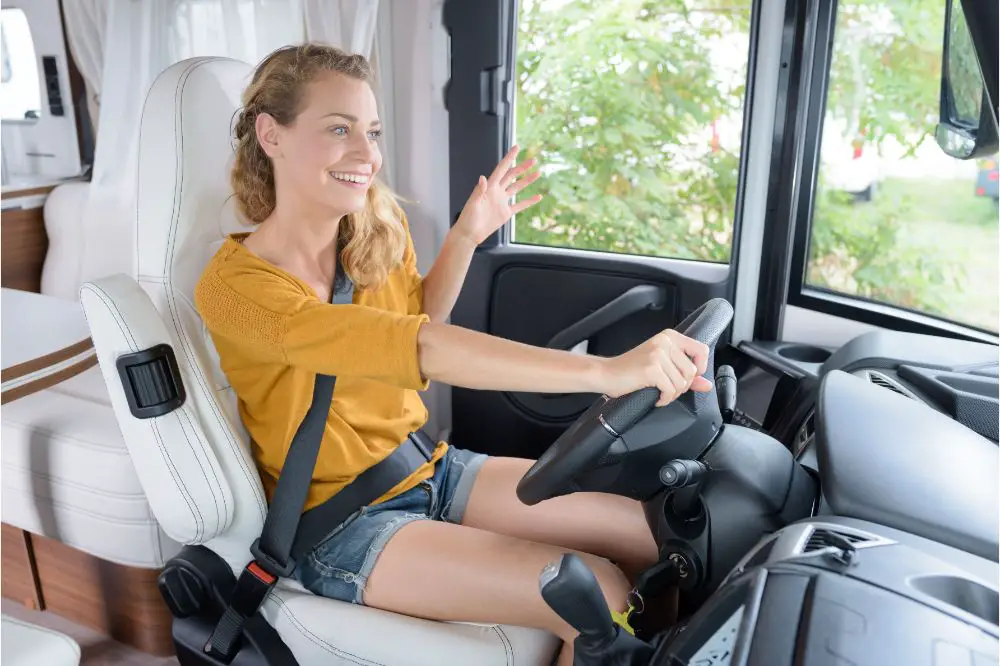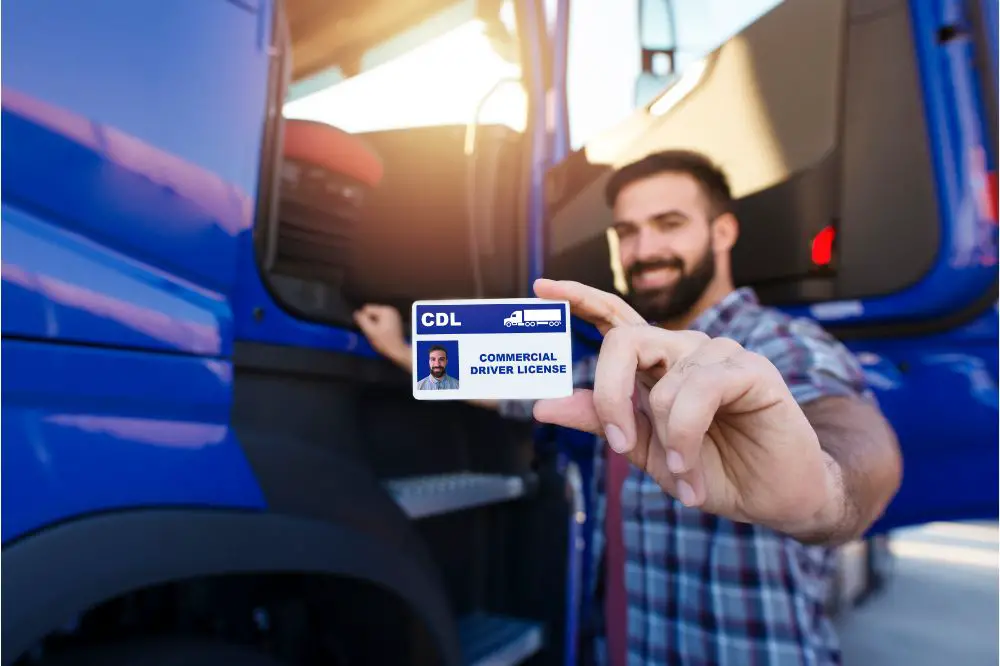Published Date: March 7, 2022
Last Updated on June 22, 2023 by Camper Front
Owning and traveling in an RV is surely an exciting and luxurious experience. Sounds great, right? But what if you need a special RV license to set up your road trip? Well, there are states where you can head on a stress-free journey right away because they don’t put an obligation for any additional license to drive RVs and motorhomes for road trips. But in the case that you live in a state that makes it mandatory to carry a special RV license, this article is for you.
Depending on which state you live in and the type of RV you own, there may be different RV license requirements. No need to worry because we have got everything covered for you below. So without further ado, let’s take a look at what license requirements you should consider if you want to drive an RV.
Table of Contents
What Classifies as an RV?
RV stands for a recreational vehicle, and it is a trailer or vehicle that has been designed to live in, some for holiday or weekend purposes, and some for long-term or permanent living.
RVs include coaches, campervans, fifth-wheel trailers, truck campers, popup campers, travel trailers or caravans, and motorhomes.
There are three classes of motorized RV – A, B, and C. These all refer to the self-contained live-in vehicles.
Which License Type Is Required to Drive an RV?
Most states require a regular driver’s license to drive an RV or motorhome but if your vehicle weighs more than 26,000 pounds, you will have to hold a special RV license which can be CDL, Class B, or R registration.
RV owners usually think that they are not obliged to hold a CDL if they are not commuting for commercial purposes. But if the vehicle exceeds a certain weight or carries more than 16 people including the driver, then some states may impose the requirement of CDL.
Types of Special License
The following are the three types of special license requirements:
- CDLs are divided into several categories and their requirement may differ from state to state.
- Class-B RV licenses can be commercial or non-commercial for different states. For example, California obliges RV owners to carry a non-commercial Class-B license for certain types of recreational vehicles.
- “R” endorsement is applicable, particularly in the State of New York. It is an extra registration requirement for RVs that have a gross vehicle weight above 26,000 pounds.
What Do You Mean By a Commercial Driver’s License?
Many people assume that a CDL, which stands for a commercial driver’s license, is only required by truck drivers because state laws and federal guidelines always obligate truck drivers to possess a CDL. Additionally, bus drivers also require a CDL as they carry the responsibility of passengers in their vehicle.
In short, a CDL is required by all large vehicles including trucks, buses, tractors, and at times RVs. As opposed to this, non-commercial special licenses are required to be held by drivers of large vehicles who are driving because of private or non-business purposes.
RV Weight Restrictions and CDL Requirements
Generally, RVs under a weight limit of 26,000 pounds don’t need an additional driving license such as Class-C RVs, pop-up campers, toy haulers, and even Class-A/Class-B motorhomes in some cases. However, if the weight capacity of your recreational vehicle exceeds 26,000 pounds then you will most probably need a specific driver’s license. The type of license you need depends on the state. Some states require a specialized CDL while others may require a specialized but non-commercial license.
The license requirement for a driver is dependent on the weight rating of that single vehicle that he or she is driving or the combined weight of multiple vehicles. Essentially, the CDL requirement is applicable if the single vehicle or combination of vehicles:
- Has/have GCWR > 26,000 pounds and GVWR > 10,000 pounds
- Has/have GVWR > 26,000 pounds
- Has/have been designed to carry above 15 people or dangerous materials

States That Require a Commercial Driver License
These are the states that make it necessary to hold a commercial driver’s license and if you don’t you might be in hot water for violating the rules.
- Arkansas
- Connecticut
- Hawaii
- Kansas
- New Mexico
- Washington DC
- Wisconsin
All the above states require a Class-B CDL type for a single vehicle weighing above 26,000 pounds and a
Class-A CDL type for multiple vehicles collectively weighing more than 26,000 pounds. The only exception is Wisconsin where the CDL requirement is based on the length of the RV and not the weight rating. If the vehicle length of an RV in Wisconsin is higher than 45 feet, then a commercial driver’s license is mandatory.
States That Require a Non-CDL Special License
As per federal guidelines, you will require a special license but not a commercial driver’s license for motorhomes in the following states if the combined weight or single vehicle weight crosses the 26,000-pound weight limit:
- California – Class-A/B license
- Maryland – Class-B license
- Michigan – R endorsement
- North Carolina – Class-A/B license
- Nevada – Class-A/B license, J endorsement
- New York – R endorsement
- Pennsylvania – Class-A/B license
- South Carolina – Class-E/F license
- Texas – Class-A/B license
- Wyoming – Class-A/B license
States That Don’t Require a Special License
Luckily, there are also some states that don’t require any special driver’s license for vehicles. Here’s a list of them:
- Alabama
- Alaska
- Arizona
- Colorado
- Delaware
- Florida
- Georgia
- Idaho
- Illinois
- Indiana
- Iowa
- Kentucky
- Louisiana
- Maine
- Massachusetts
- Minnesota
- Mississippi
- Missouri
- Ohio
- Oklahoma
- Oregon
- Rhode Island
- South Dakota
- Tennessee
- Utah
- Vermont
- Virginia
- Washington DC
- West Virginia
Conclusion
When you first begin your research, it might seem like the legal requirements involved in the driving of a recreational vehicle are somewhat challenging and confusing. Although it is true because there are quite a few considerations, once you get into it and dig deeper you will know what to do.
Just memorize the standard rule of thumb that says a single vehicle weight or a combined weight of more than 26,000 pounds requires a special license and less than 26,000 pounds is all good to go with a regular driver’s license. That’s all! Now you can have a peaceful family road trip or hang out with your buddies. Enjoy traveling!

